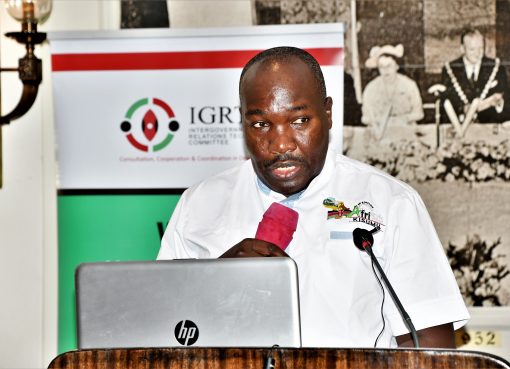The Nakuru Deputy County Commissioner (DCC), Herman Shambi has fired a warning shot at sex pests who prey on minors and impregnate them.
Shambi said those found guilty will face the full force of the law, adding that there has been a steady rise of cases of school girls becoming pregnant in most parts of the country.
Speaking when he officiated at this year’s International Day of the African Child held at Menengai Social Hall grounds in Bondeni, the administrator further said detectives were trailing a notorious drug baron believed to be from Nairobi who had enlisted boys and girls aged below the age of 13 years as drug couriers.
“We are hot on the heels of a notorious peddler who has landed in town. We are monitoring his activities and it is only a matter of time before we put him behind bars,” said Shambi.
At the same time, the administrator vowed that the government will not allow the age of sexual consent to be lowered to 16 years.
“Consent must imply maturity and an ability to take responsibility for one’s actions. Those young people often have neither. Parents must play their role and empower teenagers to stand up for their sexual rights. Sexually informed and confident youngsters are more likely to resist sexual exploitation,” said the DCC.
He further hailed courts for slapping deterrent bail terms on suspected illicit brewers within the town and its environs.
Shambi noted that a Nakuru Court made a historic ruling recently when it ordered a chang’aa brewer to deposit a Sh. 100,000 cash bail before he could be released.
Security agencies in Nakuru, he said, have intensified their crackdown against a dangerous gang that has been terrorising residents especially in the slums.
Shambi said a contingent of police officers has conducted sustained raids on hideouts of the criminal gang in Kivumbini and Flamingo estates and arrested some of its members.
The gang which has christened itself “Confirm” was in December 2016 listed by late Interior Cabinet Secretary, Joseph Nkaissery as one of the more than 90 outlawed gangs operating in Kenya.
The gang, which locals say has protection from some two local politicians, has been terrorising residents in Nakuru slums, including Kivumbini, Lake View, Kwa Rhoda, Kaptembwa, Flamingo, Kaloleni and Bondeni among others.
“We have so far arrested at least 150 members of the group in the past few months who have been charged in court. We have also increased our patrols in various parts of the affected areas,” added the DCC.
The DCC expressed concern that sports betting, gaming and gambling companies had diverted the attention of youth from the pursuit of education and hard work.
“Without proper legal and socio-economic structures, betting is emerging as our greatest challenge in the 21st century. Unfortunately, gambling is legal and is classified as a recreational activity in Kenya. However, there are no clear laws governing sports betting, leaving betting companies to set their rules and play by them,” lamented Shambi.
He proposed that no new betting company should be allowed to operate in the country while existing companies’ licenses should not be renewed once they expire.
“The emergence of gambling occasioned by multiple betting platforms, threatens to implode what was intended to be a leisurely activity. Some of these firms make Sh. 900 million a month yet they give out a measly Sh. 50 million in prizes.
Many gullible youth and the old alike are fully immersed and drowning in this betting insanity. Gambling, especially sports betting, is fast becoming a lethal threat to Kenyan youths”, warned the administrator.
Shambi said promotion of social norms such as working hard to earn a meal and legislative interventions must be engaged to stamp out the dangers of gambling from among the citizenry.
Studies conducted through Geopoll on the rise of sports betting on the continent show Kenya has the highest number of gambling youth aged between 17-35 years in Sub-Saharan Africa and sports betting has become the most popular form of gambling.
Besides the Betting, Lotteries and Gaming Act of 1966, which made way for gambling as a practice to be introduced, Kenya lacks a solid legal framework to control sports betting.
The closest the government has come to regulating the industry was in September last year when a 20 percent tax on bettors’ wins was introduced through the Finance Bill 2018.
Currently there are 23 betting sites in Kenya offering both online and offline betting services. Some gambling platforms even offer lotteries with wager amounts as low as Sh.5.
“Because they earn or lose a lot of money within a short span of time, many youth have become lazy and depend on the addictive gambling instead of working. Some end up stealing in order to get money for placing their stakes” noted Shambi.
By Anne Mwale/Jecinta Njoroge



